

(This post first appeared February 20 on Truthout and is republished with permission.)
Republicans were quick to criticize President Obama last week after he proposed raising the federal minimum wage from $7.25 to $9 during his State of the Union address, but now a poll shows that a majority of voters agree with the president that the current minimum wage is not a living wage and a hike is in order.
A Rasmussen Reports national survey released on Tuesday found that only 15 percent of voters believe the current minimum wage provides workers with enough money to live on, while 72 percent said $7.25 an hour is not a living wage.
Voters remain more closely divided on actually raising the minimum wage, with 54 percent in favor of the raising the minimum wage to $9 an hour and 36 percent opposed to the proposal.
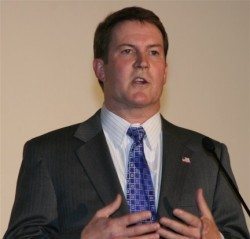
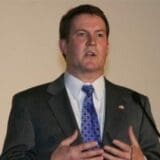
Yesterday we published Part One of a conversation with mayoral hopeful Kevin James, continuing our interviews with Los Angeles’ front-running candidates. James is an entertainment lawyer and talk-show host, who has previously served as a U.S. prosecutor and AIDS Project Los Angeles co-chairman. (The series’ interviews, which have been edited for clarity, include Eric Garcetti, Parts One and Two, and Wendy Greuel, Parts One and Two.)
Frying Pan News: Your campaign’s main selling point is that you are not a City Hall insider, that you have no institutional connection to the city’s budget problems. Other than this, why should Angelenos vote for you?
Kevin James: Neighborhoods across our city believe that this City Council has shut them out, that they don’t have a voice.
» Read more about: Kevin James: Restore City Services and Voter Involvement »
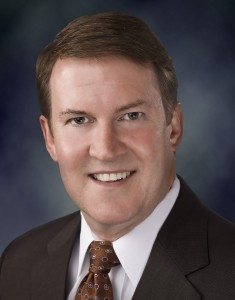
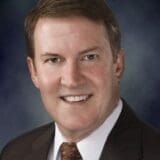
We continue our series of interviews with Los Angeles’ front-running mayoral candidates, with the first part of a talk with Kevin James, an entertainment lawyer and talk-show host, who has previously served as a U.S. prosecutor and AIDS Project Los Angeles co-chairman. (The interviews, which have been edited for clarity, include Eric Garcetti, Parts One and Two, and Wendy Greuel, Parts One and Two.)
Frying Pan News: What do you believe is the role of government in addressing the inequities of the free market system?
Kevin James: A mayor should not shy away from addressing inequality. I was [a] chairman for many years of AIDS Project Los Angeles and part of the work we did was to provide a better life for people who were struggling in theirs —
» Read more about: Kevin James on Bringing Businesses Back to Los Angeles »


In English, “sequestration” sounds like obscure policy wonk jargon. In Spanish, it has a very simple meaning: “kidnapping.”
The kidnapping of our economy is exactly what’s in store for later this week, unless a last minute deal derails plans to cut $85 billion from the federal budget. Corporate backed politicians like Sen. Tom Coburn (R-OK) claim that the cuts target “an excessive, bloated, big federal government that’s highly inefficient and highly ineffective.” But the truth is that the cuts will slice deep into our most important safety net programs.
What will sequestration mean for our families? According to a simple summary from the non-partisan United Way the effects in Californian’s health and education include the following:
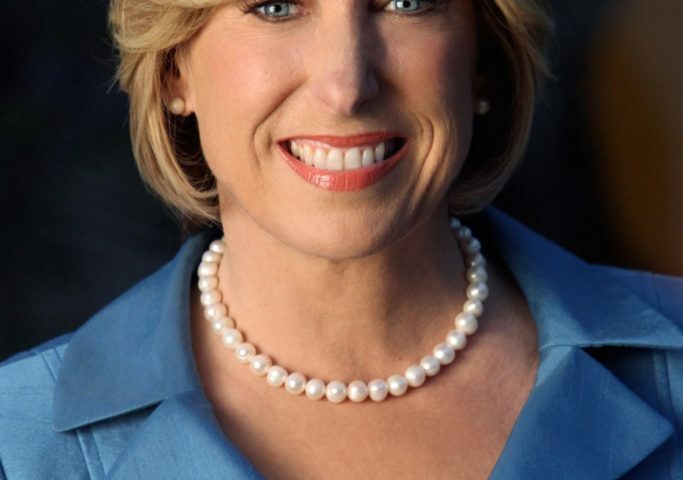

Today we continue our series of interviews with Los Angeles’ front-running mayoral candidates, with the second part of a talk with City Controller Wendy Greuel. (Next week: Kevin James. See also, Part One of the Wendy Greuel interview, as well as Parts One and Two of our Eric Garcetti interview.)
Frying Pan News: Corporate lobbyists spent more than $30 million last year to influence decisions at City Hall – far more than unions or any other group. Do you think that big business has too much power over local government?
Wendy Greuel: Thirty million dollars is a lot of money. I will, as mayor – as I do as controller and as I did as councilmember — ensure that there is a transparent process and that no one has more access than another to the kinds of decisions that are made in the city.
» Read more about: Wendy Greuel on Lobbyists, Developers and Big Box Stores »


Today we continue our series of interviews with Los Angeles’ front-running mayoral candidates, with the first part of a talk with City Controller Wendy Greuel, who has previously served as an L.A. City Councilmember. (Tomorrow: Wendy Greuel interview, Part Two. See interviews with Eric Garcetti, Part One and Part Two.)
Frying Pan News: If your opponents are capable and honorable people, why are you running for mayor – why not just sit back and let one of them take the office?
Wendy Greuel: I have the unique experiences that none of the other candidates have. I’ve worked for Tom Bradley, one of the greatest mayors we’ve had in Los Angeles. On the federal level I worked with Henry Cisneros at the Department of Housing and Urban Development – not only on national homeless programs but [by] being here after the Northridge earthquake.
» Read more about: Wendy Greuel on Apathy, Big Money and Being a Jobs Tsar »
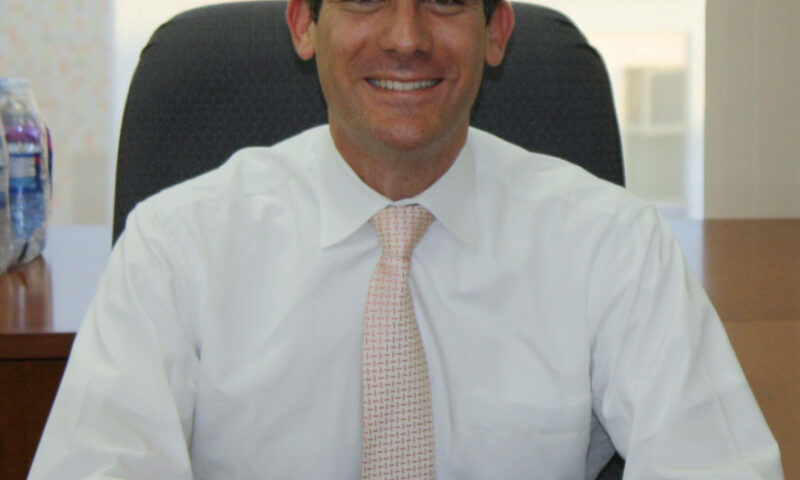

Frying Pan News continues its series of interviews with the leading mayoral candidates, who will face off in the March 5 primary. Part Two of our interview with City Councilmember Eric Garcetti appears today (click here to read Part One), followed Thursday by a conversation with City Controller Wendy Greuel.
Frying Pan News: Many in the business community would prefer the mayor to be a cheerleader for business, but in the last few years we’ve seen what happens when the economy is left to big corporations and financial institutions. How will you balance the interests of the business community and those who are desperately trying to find a path into the middle class?
Eric Garcetti: There’s no question that business is absolutely critical to our economic strength here, and by business it’s not necessarily just the large corporations – we’re talking about the mom and pop store,
» Read more about: Eric Garcetti on Pensions, Privatization and Port Trucking »
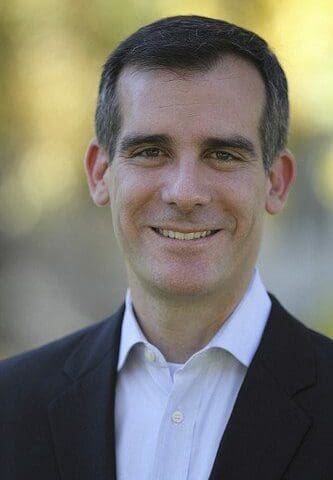

Today Frying Pan News launches a series of interviews with the leading mayoral candidates, who will face off in the March 5 primary. Beginning with City Councilmember Eric Garcetti, we posed questions about what we think are the most pressing issues our next mayor must confront. Part One of our interview with Garcetti appears today; Part Two will run tomorrow, followed by a conversation with City Controller Wendy Greuel.
Frying Pan News: A lot of the mayoral debate so far has focused on challenges with the city budget and whether we should cut benefits for city employees. Can you paint your broad vision of how we bring good jobs, clean air and healthy communities to all of Los Angeles?
Eric Garcetti: Our recovery can’t be just about how we are going to cut more, tax more. My greatest fear is that we will have those who will do well no matter how bad things get – the highly educated,
» Read more about: Eric Garcetti on Walmart, Waste and Living Wage Laws »


The GOP’s inviolate article of faith is that big government is inherently evil. The GOP has been stupendously successful through much of the last century in tagging any Democrat that champions increased regulatory powers, higher taxes on corporations and the rich, greater public spending on health, education and job programs, and bolstering entitlement programs as a reckless, tax-and-spend enemy of private enterprise. Franklin Roosevelt was no exception to the maligning. Often forgotten in the historic lionizing of FDR for standing government on its head to blunt the hard edge of the Great Depression, was that the GOP (with some help from a small but pesky clique of Democratic congressional conservatives, big industrialists and conservative newspaper moguls) fought FDR tooth and nail on every one of his reform proposals from Social Security to tighter industry regulation. Also forgotten, is that FDR had to tweak, compromise and water down his proposals, even the successful ones, to get passage.
» Read more about: Can Obama Do an FDR in His Second Term? »
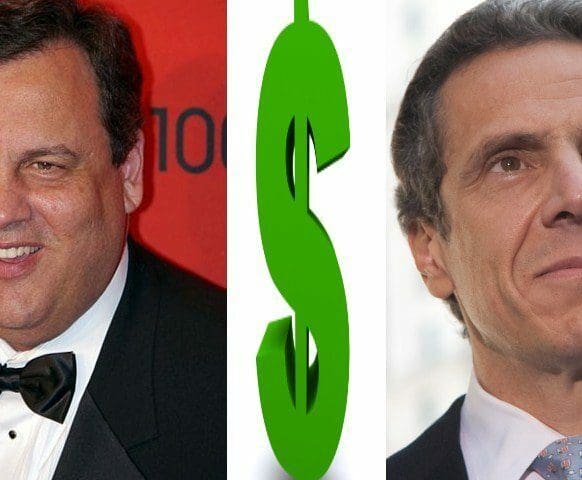
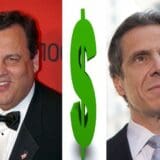
Two potential candidates for president in 2016, New Jersey Governor Chris Christie and New York Governor Andrew Cuomo, have taken opposing positions on raising the minimum wage in their states. The debate between the two governors draws a sharp distinction between competing economic visions: trickle-down vs. middle-out economics. At the same time, it also shows how limited the current debate is when it comes to dealing with what’s needed to meet the needs of working families and, in doing so, change the direction of economic policy.
In late January, New Jersey Governor Chris Christie vetoed a small increase in the minimum wage, from the current federal minimum of $7.25 an hour to $8.50 an hour. Christie said that raising the minimum wage would “jeopardize New Jersey’s economic progress.” Christie based his opposition on concerns about small business, although two out of three low-wage workers are employed by corporations with over 100 employees.
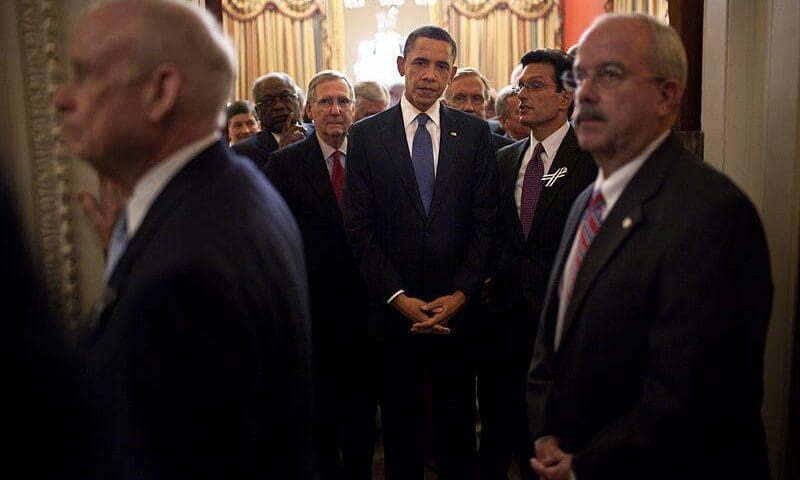
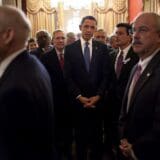
If you’re sitting in the well of the House when a president gives a State of the Union address (as I’ve had the privilege of doing five times), the hardest part is on the knees. You’re required to stand and applaud every applause line, which means, if you’re in the cabinet or an elected official of the president’s party, an extraordinary amount of standing and sitting.
But for a president himself, the State of the Union provides a unique opportunity to focus the entire nation’s attention on the central issue you want the nation to help you take action on.
President Obama has been focusing his (and therefore America’s) attention on immigration, guns, and the environment. All are important. But in my view none of these should be the central theme of his address Tuesday evening.
His focus should be on the joblessness, falling real wages, economic insecurity, and widening inequality that continue to dog the nation.


(Editor’s Note: Today we continue our series of posts from invited writers who offer thoughts on what the coming four years hold for Los Angeles and its next mayor. These opinions do not reflect the views of Frying Pan News or the Los Angeles Alliance for a New Economy.)
Before Antonio Villaraigosa won his first term as mayor, he came over to my house to film a commercial. This took place by the merest chance. My neighbor across the street is a union organizer, a fellow progressive and a respected figure in local Democratic circles — he might have had something to do with Villaraigosa’s sudden appearance in our neighborhood. A whole bunch of staffers fanned out up and down our street that morning, knocking on every door to ascertain where they might mingle with hoi polloi and gather up a few sound bites.
» Read more about: Memo to Next Mayor: We’re All in This Together »
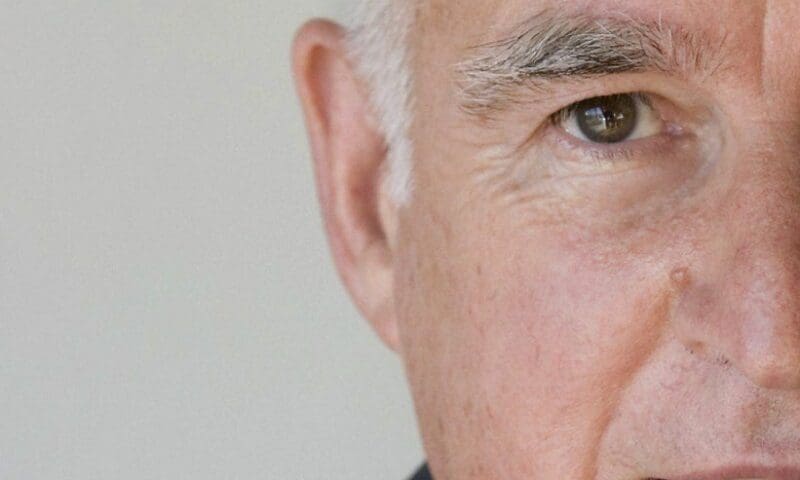

The walking, talking, governing refutation of the notion that there are no second acts in American lives is on a roll in California. “I’ve never been more excited,” Gov. Jerry Brown says, “and this is my 11th year on the job.”
Brown, 74, has ample reason for excitement. After a calamitous recession (inland California was the epicenter of the subprime quake) and nearly a decade of record deficits and legislative gridlock, Brown has come up with a budget that will put the Golden State into surplus territory without requiring further cuts. In November, voters approved Brown’s ballot measure, Proposition 30, which raised taxes on the wealthy and stabilized state finances to the point that Standard & Poor’s upgraded California’s credit rating last week. The new revenue has gone chiefly to schools and universities, though Brown wants to change K-12 funding so that money flows disproportionately to those districts with more impoverished and Spanish-speaking children.
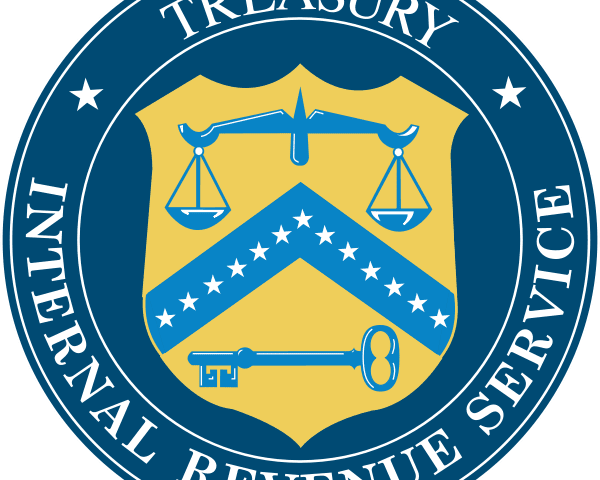

Exactly a century ago, on February 3, 1913, the 16th Amendment to the Constitution was ratified, authorizing a federal income tax. Congress turned it into a graduated tax, based on “capacity to pay.”
It was among the signal victories of the progressive movement — the first constitutional amendment in 40 years (the first 10 had been included in the Bill of Rights, the 11th and 12th in 1789 and 1804, and three others in consequence of the Civil War), reflecting a great political transformation in America.
The 1880s and 1890s had been the Gilded Age, the time of robber barons, when a small number controlled almost all the nation’s wealth as well as our democracy, when poverty had risen to record levels, and when it looked as though the country was destined to become a moneyed aristocracy.
But almost without warning, progressives reversed the tide. Teddy Roosevelt became president in 1901,
» Read more about: A Progressive Anniversary: The Income Tax Is 100 Years Old »


When the President finished his inaugural speech the other week, I said to my wife Susan, “That was a great piece of rhetoric.” By that I did not mean a lot of flowery words strung together or a piece of political discourse from a particular party’s perspective. I meant it as high praise of a public address that transcends the immediate moment and inspires us as a people to live up to our nation’s principles. This one, unlike four years ago, felt like the caliber of speeches I had studied in college in a course on Rhetoric and Public Address.
At least that is what I thought I’d heard. The President talked about the unresolved problems that face us as a nation: immigration, gun reform, deficit control, climate change, economic inequality. He placed those within the context of this nation’s founding principles: life, liberty, the pursuit of happiness. Then the President reminded us how we Americans have always acted to resolve the issues that face us: from Seneca Falls to Selma to Stonewall – three locations that struck movements to expand democracy and make the pursuit of happiness more possible for more people.
» Read more about: Walking the Talk: A Speech for All Seasons »


I wonder what the three mayoral candidates thought of last night, as they traveled to the third and final debate to be held in South Los Angeles before the March 5 election. Were Wendy Greuel, Jan Perry and Eric Garcetti affected by the change in scenery as they drove closer to Ward AME Church, one of the city’s historic religious institutions?
I would like to think that they clearly saw the run-down corridors, littered with liquor stores, abandoned buildings, empty lots and fast food joints. As they approached the steps of the church did these veteran public servants allow themselves to catch the eyes of that beautiful little neighborhood girl or boy who has access to fewer resources, as well as a lower probability of living a high quality life than a child from the Westside or San Fernando Valley?
Looking forward, if elected, would the high poverty rates in South Los Angeles and elsewhere keep Greuel,
» Read more about: Mayoral Candidates Forum: Debating South L.A.’s Future »


Atop the list of landmark laws that conservatives have never particularly warmed to are two that established fundamental rights for workers and consumers: the 1935 National Labor Relations Act, which provided employees a legal path to form unions, and the 2010 Dodd-Frank financial reform, which established a Consumer Financial Protection Bureau to rein in banks’ abusive treatment of depositors and mortgage holders. Conservatives have never had the votes or the gumption to repeal these statutes. But now they can essentially neuter these laws.
[Last] Friday, three judges on the U.S. Court of Appeals for the District of Columbia Circuit — all nominated by Republican presidents — ruled that President Obama lacked the authority for three appointments he had made to the National Labor Relations Board (NLRB) during the break between Congress’s 2011 and 2012 sessions. Invoking the president’s power to make one- or two-year appointments while Congress is in recess — a power that presidents have exercised as far back as James Madison — Obama appointed two Democrats and one Republican in the face of continued Republican opposition to his previous NLRB picks.
» Read more about: Court Decision Could Cripple NLRB and Consumer Bureau »
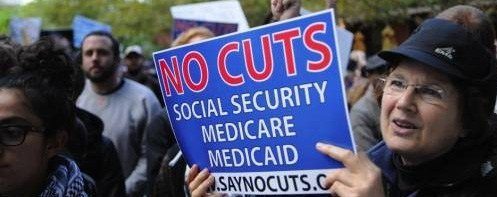
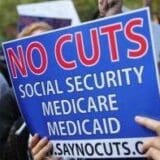
As Senator Bernie Sanders has warned, “Social Security faces an unprecedented attack from Wall Street, the Republican Party and a few Democrats. If the American people are not prepared to fight back, the dismantling of Social Security could begin in the very near future.”
What exactly does the 99 Percent need to know to defend Social Security against the Wall Street One Percenters who want to profit by destroying it?
First, know our adversaries. Listen closely to the corporate-funded Heritage Foundation, headed by Tea Party hero and former Senator Jim DeMint. They want to turn part of our retirement and disability savings over to the same Wall Street firms that crashed our economy.
Heritage’s Social Security plan would
» Read more about: Wall Street’s Newest Hedge Fund: Social Security »
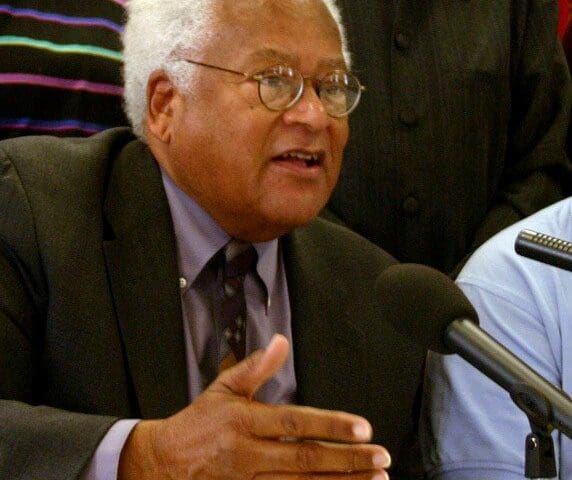
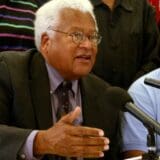
Civil rights leader Reverend James Lawson announced last Saturday that he’s planning to give himself to a new nonviolent direct action campaign with the Children’s Defense Fund, but wasn’t ready yet to discuss the details. The setting was his monthly workshop on the theory of nonviolence, where upwards of 35 people of diverse ages and backgrounds were gathered to hear Lawson present his provocative thoughts on basic human values, spirituality and the need for systemic social change.
Credited with introducing nonviolent direct action to the 1960s civil rights movement, Rev. Lawson feels the theory of nonviolence has had the equivalent impact on our understanding of the universe as Einstein’s theory of relativity. He sees the recent growth of California’s labor movement as an outgrowth of what Lawson calls “this science of social change” introduced to the state by farm worker leader Cesar Chavez in the 1960s and 70s.
Lawson was dressed last weekend in pressed khaki slacks,
» Read more about: James Lawson: Training for Nonviolence’s Next Step »


The Republican Party spent the better part of the past few years reaching back a century or more for ideas. Where liberals saw the dangers of a creeping Gilded Age on the horizon, conservatives cheered the true freedom that attends gross economic inequality. Paul Ryan, one of the GOP’s standard-bearers, repeatedly excited crowds with the promise of the true adventure and excitement that comes from riding the free market without a social safety net. By adopting the Republican vision, he explained, you choose against “a dull, adventureless journey from one entitlement to the next, a government-planned life, a country where everything is free but us.”
Similarly, there is currently a conservative attempt to rehabilitate the infamous 1905 Supreme Court decision of Lochner v. New York, which struck down on economic liberty grounds a New York state law that forbade bakers from working more than 10 hours per day and 60 hours per week.
» Read more about: Atlas Smirked: Why the GOP Kicks the Ladders to Prosperity »